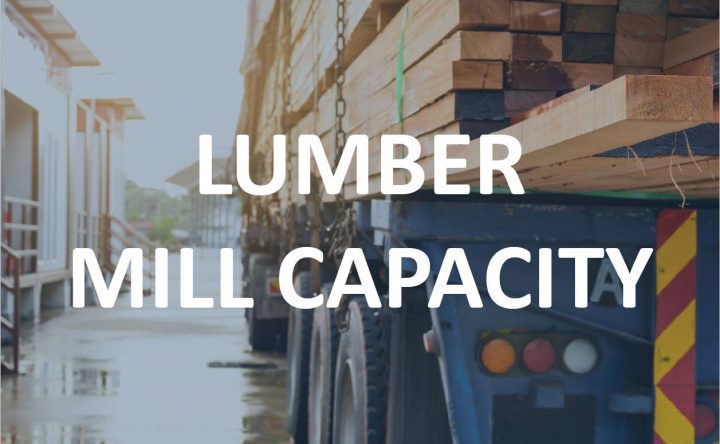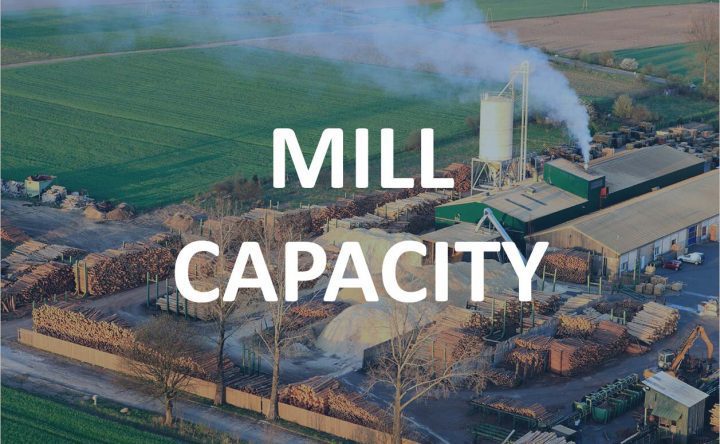Interfor Corporation and Louisiana Gov. John Bel Edwards have jointly announced the planned restarting of operations at the sawmill in DeQuincy, Louisiana, which has annual lumber production capacity of 200 million board feet. Lumber production is expected to begin in the first half of 2022.
News in mill capacity changes
Fire Destroys Millett Lumber Co. Mill in Chester Grant, Nova Scotia
Seventy firefighters from 11 different departments battled a blaze on Monday afternoon at Millett Lumber Co. in Chester Grant, Nova Scotia. The mill produced boards, dimensional lumber, siding, decking as well as dressed and rough small squares and timbers.
Interfor Expecting Production Disruptions at Interior B.C. Sawmills in Q3 Due to Impact of Wildfires and Other Factors on Log Supply
Interfor, on Thursday (7-29-21), announced that it is expecting production disruptions at its B.C. Interior sawmills during Q3 of 2021 due to the ongoing impacts of wildfires and other factors on log supply. Interfor said that based on current information, it is expecting to curtail a minimum of 50 million board feet of production across its B.C. Interior operations in August.
Hunt Forest Products and Tolko Industries Announce a Joint Venture to Build a New State-of-the Art Sawmill in Bienville, Louisiana
Hunt Forest Products and Tolko Industries today (7-26-21) announced that they intended to build a $240 million, state-of-the-art sawmill in Bienville Parish near Taylor, Louisiana. The new sawmill project is a joint venture between Hunt Forest Products and Tolko.
Fire Destroys Sawmill Manufacturing Building at Glidden Lumber Co. in Parkman, Maine
A fire last Tuesday (7-20-21) morning destroyed the main sawmill manufacturing building at Glidden Lumber Company in Parkman, Maine. Local officials believe that a faulty piece of machinery was the cause of the blaze.
Central Alabama Wood Products Goes High Tech
In June of 2020 when many companies were fighting to keep their doors open, Central Alabama Wood Products, located in Coosa County, Alabama, made the decision to make a major investment in their mill and their future. Pat McGinn with Central Alabama Wood Products notes that “We make a lot of lumber and cross ties here.”
Alberta’s First New Forest Management Agreement in 12-Years is with Spray Lake Sawmill Affiliate
The first new Forest Management Agreement in 12-years, in the Province of Alberta, has been announced and it is with Crowsnest Forest Products Ltd., affiliate of Spray Lake Sawmills. Forest Management Agreements are the most secure type of forest tenure and are designed to provide companies with rights to establish, grow, harvest and remove timber on Crown land using sustainable forest management practices.
Canfor Announces Q3 Curtailments at their Canadian Sawmills
Citing significant supply chain challenges and transportation backlogs in Western Canada, the result of extreme wildfire conditions, Canfor Corporation announced on Tuesday (7-20-21) afternoon that it will be curtailing approximately 115 million board feet of production capacity at its Canadian sawmills during Q3.
Setra Group Announces Investment in New Saw Line for Small Diameter Logs at their Skinnskatteberg Mill
Setra Group, one of Sweden’s largest wood products companies with eight sawmills and three processing plants, announced on Tuesday (7-13-21) that they were investing in a new saw line for small diameter logs at their facility in Skinnskatteberg. The investment will provide major efficiency improvement and increase resource utilization.
Australia’s Building Boom Leads to a Surge in Sawmill Employment
According to analysis provided by the Australian Forest Products Association (AFPA), the COVID-19 pandemic has fueled a building boom in the country, and as a result Australia’s timber framing sawmills have increased employment by almost 25%. This analysis is in stark contrast to reported Organization for Economic Co-operation and Development (OECD) global trends that suggested that timber processing employment would fall.





